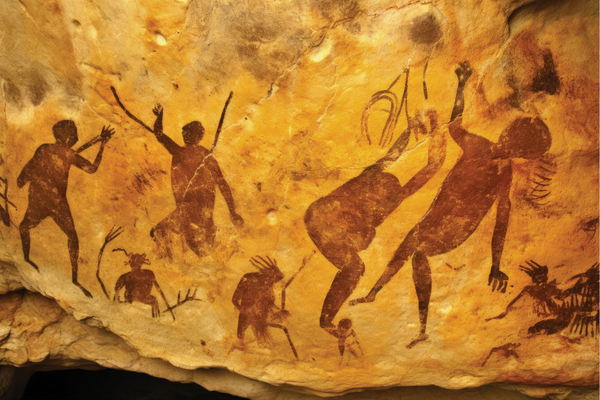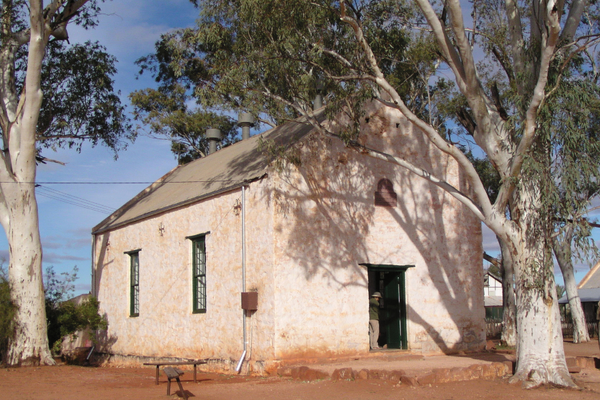Representation & Good Government

During and after an election campaign, one often hears complaints about the poor quality of debate, the personal attacks, the posturing of parties and the general lack of sensible deliberation. These complaints come from a fear that this flurry of campaigning and competing messages serves to obscure real issues and so stifle the capacity of the electorate to make measured decisions about who will govern them. There is, no doubt, some basis for these anxieties. However, underlying them is a deeper misunderstanding about the nature of political representation. Relying on the work of Oliver O’Donovan on this topic, this essay seeks to unpack this misunderstanding and show how a richer understanding of representation can illuminate our common experience of politics and clarify the shape of Christian political action.
What is representation?
Representation has to do with one party acting on behalf of another. It is a common feature of life: lawyers represent us in court, accountants represent us before the tax office, spokespeople represent our committees. Sometimes representation is a matter of reflection, where it is the task of the delegated representative to reflect the views of others, such as when one juror represents the entire jury. But this is not the only way, or indeed the normal way, representation works. Stirling Mortlock’s rugby team represented Australia, yet they did not reflect Australia’s abilities. Imagine if, in their bid for the World Cup, the team had had to listen to the advice of twenty million armchair fans! Representation properly understood has to do with one party acting on behalf of another, so that what the representative does, the represented party does through them.
Crucially, this is the case in the most important act of representation of all, Christ’s representation of us. Christ, as the apostle Paul clearly understood, is our representative, so that what he does, we do through him: “... we are convinced that one has died for all; therefore all have died!” (2 Corinthians 5:14)
Jesus is our representative. His representation is not simply reflection— he has done precisely what we could not do. His representation makes possible action which without his representing us, we would not be able to accomplish. O’Donovan comments:
As the early church conceived Jesus’ role, it was new, creative and irreplaceable, an innovation which defied repetition and defined new reality and possibility. As such it was atypical; the representative had to contribute something that was not already there. He could not represent by being the supremely average figure...to represent is to transcend the represented; it cannot be done from a position of complicity. In the identification of the representative with the represented there is something fitting, but there is also something innovative and unforeseen.[1]
Christ’s deed for us is the ultimate act of representation. It demonstrates that representation is not always simple reflection or delegation; it is an identification of the many with the representative which creates new possibilities for action.
Political representation
If we want to understand political representation, it is vital that we grasp this first point. Political representation has come to be commonly understood as a function of our appointment of government by election. We elect representatives, who we then expect to reflect our views in government. Yet this implies that government does not represent up to fifty percent of the electorate. Older generations, however, would not have been troubled by this problem because they understood representation more richly and could speak of the (unelected) king representing his people. So Thomas Hobbes, for instance, saw the monarch straightforwardly as the representative of his or her people, while maintaining that this representation did not subordinate the monarch to the people’s will.[2] Likewise, in Israel’s experience, as O’Donovan comments, “King and priest both represented Israel; but neither of them was appointed by Israel or was answerable to Israel.”[3] For Israel, political representation was not created by the community, but given by God.
However, in contrast to Israel’s acknowledgement of divine providence in raising up representative political authority, Western political theory since Hobbes has sought to find the origin of representation in the will of the people. Hobbes managed to maintain this alongside his conception of the monarch as the representative; but later theory was unable to sustain this tension; and political representation became increasingly tied to the actual, concretely-expressed will of the people, leading to our problematic sense that representation is established through election. Yet Israel’s understanding was right: political representation is not a matter of the people’s appointment, but God’s provision. Political representation is not established by votes; it occurs in the people’s recognition of this government as their government. This recognition, O’Donovan points out, is affective as well as cognitive; it is a matter of how we imagine ourselves as a people and how we identify with our government; it is a “mysterious alchemy”.[4]
Interestingly, O’Donovan suggests that this element of affect, which has long been lost to official theories of representation, helps explain the nature of election campaigns:
The coronation of the monarch used to be such a moment of recognition [affective as well as cognitive]. In modern democracies the general election, not so overtly ceremonious but every bit as instinctual, takes its place, sealing the bond of identification between people and rulers … the election actively exploits the affective power of contest and victory, like those primitive kingships attested in myth in which the throne was won by slaying the incumbent in single combat. The “election behaviour” of politicians, party organisations, media, and ordinary voters is an important trace of this deeper political imagination buried beneath formal theories of popular sovereignty. The overflowing of collective feeling in hyperbolic rhetoric, the drowning-out of measured reflection, the ritual enactment of conflict between unreal enemies, the crude attempt of contenders to make symbolic contact with powerful sectors of society, all serve to affirm a common political identity binding the people to its government.[5]
Political representation is not a matter of Members of Parliament reflecting the views of the electorate; it is a bond between people and government established through recognition and given by God. It is not a goal for rulers to achieve, but a necessary precondition for government to be possible. Like Christ’s representation, political representation is more than simple reflection; it is an identification of a people with a government which opens up space for action that would not otherwise be possible.
Apologetics and Christian Political Action
In the introduction to The Ways of Judgment, O’Donovan wrote:
Western civilization finds itself the heir of political institutions and traditions which it values without any clear idea why, or to what extent it values them. Faced with decisions about their future development it has no way of telling what counts as improvement and what as subversion. It cannot tell where “straight ahead” lies, let alone whether it ought to keep on going there … One train of Christian thought that carries apologetic weight in our times is the capacity of faith to display the intelligibility of political institutions and traditions.[6]
Political representation, is, it seems, a perfect example of a point at which Christian thought has the capacity to display the intelligibility of our political institutions and traditions and so serve an apologetic purpose. The phenomenon of political representation cannot be accounted for by electoral mechanics. It is a deeper, more fundamental identification of government and people, which is ultimately incomprehensible without a belief in the God who “establishes” the governments that actually exist (Romans 13:1).
Reviving this understanding of political representation can also help clarify the shape Christian political action should take. It shows us that we have no right to demand that governments take particular actions on the basis that a section of the electorate, however substantial, believes or desires certain things. This would be to buy into a view that political representation is a matter of government merely reflecting the views of the electorate, that this is a goal for government to continually aspire to (and continually fail). But representation is a gift, not a goal. In God’s providential grace, our government does represent us. That is the starting point, not the aim, of our political engagement.
So the right approach for Christian political action is simply to seek to help our representatives govern well, to help our governments be good. What this involves is, of course, a big and complex question in its own right, requiring ongoing, careful discernment. But it will at least involve reminding our governments that their primary role is to defend the common good by making just judgments (Romans 13:1-7; 1 Peter 2:13-14; 1 Timothy 2:1-2). It will mean calling them to the truth about the world and human existence revealed in the word of God; and above all, it will mean proclaiming the gospel of Jesus Christ the King, before whom all the world’s rulers will one day cast down their crowns (Revelation 4:10).
ENDNOTES
[1] Oliver O’Donovan, The Desire of the Nations: Rediscovering the Roots of Political Theology, Cambridge University Press, 1996, pp125-6
[2] Thomas Hobbes, Leviathan, 19. See also Oliver O’Donovan, The Ways of Judgment, Michigan: Eerdmans, 2005, pp158-159
[3] Ibid, p158
[4] Ibid, p159, p164
[5] Ibid, p162
[6] Ibid, pxiii
Leave a comment
Comments will be approved before showing up.



